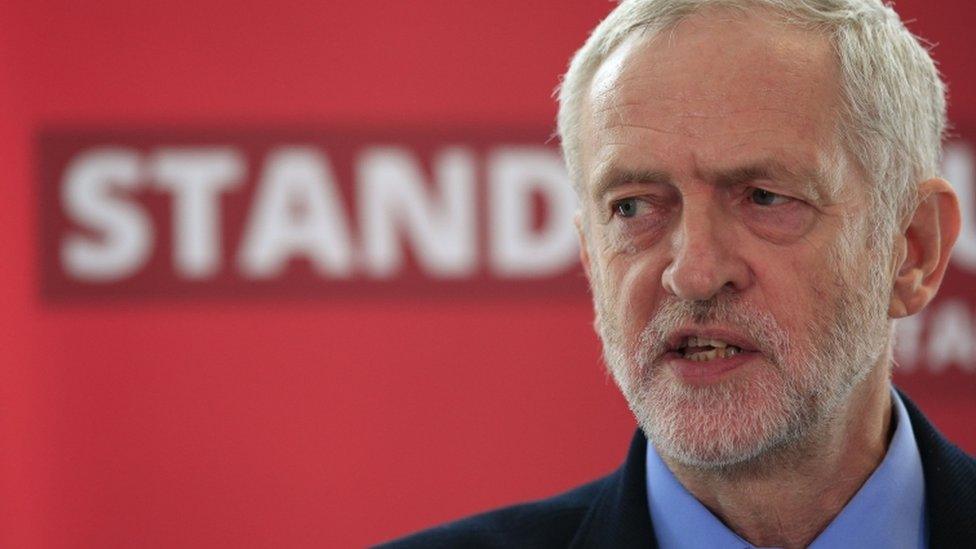How the Labour anti-Semitism saga unfolded
- Published
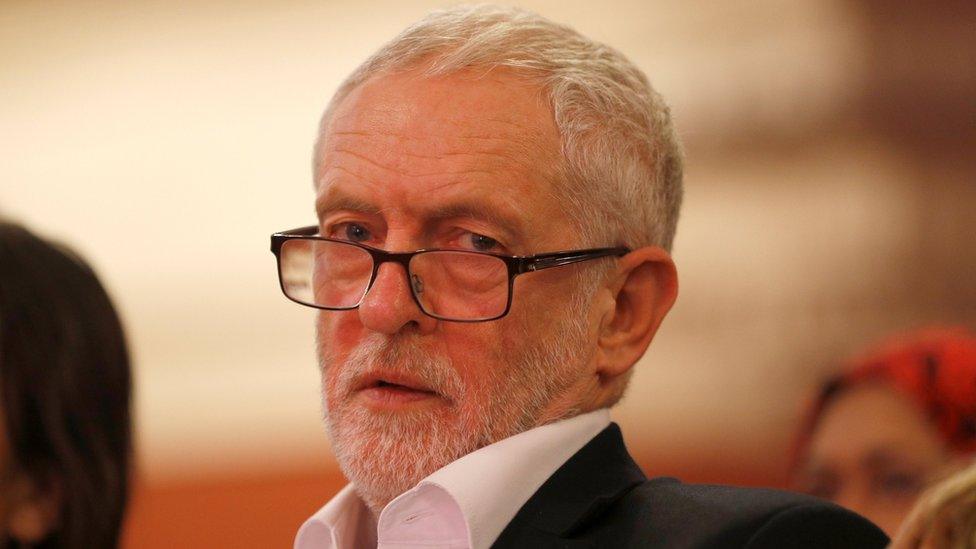
Jeremy Corbyn says he is "sincerely sorry" for the pain caused by "pockets of anti-Semitism" in the Labour Party
A row about anti-Semitism in the Labour Party has been prompted by Jeremy Corbyn's comments on an allegedly anti-Semitic mural in 2012.
But this is not the first time the Labour leader has faced calls to deal with anti-Semitism in recent years.
Shah allegations
The current row can be traced back to two allegations in 2016 - a year after Mr Corbyn became leader.
The first was against the MP for Bradford West, Naz Shah.
It was revealed that the year before she became the MP, she shared a graphic showing an image of Israel's outline superimposed on a map of the US under the headline "Solution for Israel-Palestine conflict - relocate Israel into United States", with the comment "problem solved".
A number of other posts emerged, with her comparing Israel to the Nazis and saying "the Jews are rallying".
She apologised and resigned from her post as John McDonnell's parliamentary private secretary.
2016: Naz Shah blames ignorance for posts she admits were anti-Semitic
Mr Corbyn said Ms Shah's remarks were "offensive and unacceptable", and she was suspended from the party.
She was reinstated in July and blamed her "ignorance" for the posts, admitting they were anti-Semitic.
Labour's National Executive Committee gave her a formal warning, told her to apologise for bringing the party into disrepute and warned that if there was another incident she would be expelled.
Livingstone comments
It was during the row over Ms Shah that the former London Mayor Ken Livingstone made his own comments that were alleged to have been anti-Semitic.
Mr Livingstone appeared on BBC Radio London defending the MP and said he had never heard anyone in the Labour Party say anything anti-Semitic.
He added: "When Hitler won his election in 1932 his policy then was that Jews should be moved to Israel. He was supporting Zionism before he went mad and ended up killing six million Jews."
This led to widespread criticism of Mr Livingstone, with Labour MP John Mann accusing him of being a "Nazi apologist" in front of a media scrum.
2016: Ken Livingstone said Naz Shah's comments were not anti-Semitic
Mr Livingstone said he was not suggesting Hitler was a Zionist, adding that the Nazi leader was "a monster from start to finish".
But he said he had simply been quoting historical "facts".
The long-time ally of Mr Corbyn was suspended by the party for a year, but he refused to apologise and continued to repeat his comments.
He was then suspended for a further 12 months in April 2017 after a Labour disciplinary panel upheld three charges of breaching party rules, prompting Mr Corbyn to order a fresh internal inquiry into his conduct.
His suspension has now been extended again pending the outcome of an internal investigation.
Chakrabarti inquiry
It was after Ms Shah's comments and Mr Livingstone's defence that Mr Corbyn announced an inquiry into allegations of anti-Semitism and other forms of racism in the party at the end of April 2016.
It was led by Shami Chakrabarti, the former director of human rights campaign group Liberty. She announced she had joined the Labour Party after her appointment as chair on the inquiry.
The inquiry lasted for two months and at the end of June 2016, Ms Chakrabarti concluded that while the Labour Party was not overrun by anti-Semitism, there was an "occasionally toxic atmosphere".
Ms Chakrabarti made 20 recommendations, external, including:
Abusive references to any particular person or group based on actual or perceived physical characteristics and racial or religious tropes and stereotypes should have no place in Labour Party discourse.
Labour members should resist the use of Hitler, Nazi and Holocaust metaphors, distortions and comparisons in debates about Israel-Palestine in particular.
There should be procedural rule changes to improve the party's disciplinary process and the adoption and publication of a complaints procedure.
The appointment of a general counsel to the Labour Party to give advice on issues including disciplinary matters and to take responsibility for instructing external lawyers.
The party should increase the ethnic diversity of its staff.
However, she said she did not approve of lifetime bans for party membership.
Two months later, she became a Labour peer - the only appointment to the House of Lords Mr Corbyn has so far made.
Student allegations
Around the same time, allegations of anti-Semitism arose from the Oxford University Labour Club.
They claimed that members of the club had discussed Zionists rigging British elections, frequently used the term "Zio" and said that European attacks on Jews were justified because of Gaza.
The allegations led to the Labour Party's national student organisation conducting their own inquiry, and its report was leaked to the press in the summer of 2016.
In it, Baroness Royall concluded there had been "some incidents" of anti-Semitic behaviour and "behaviour and language that would once have been intolerable is now tolerated" in the club.
However, she said there was "no evidence the club is itself institutionally anti-Semitic".
Just under a year later, two students were cleared by the NEC's disputes committee of being anti-Semitic.
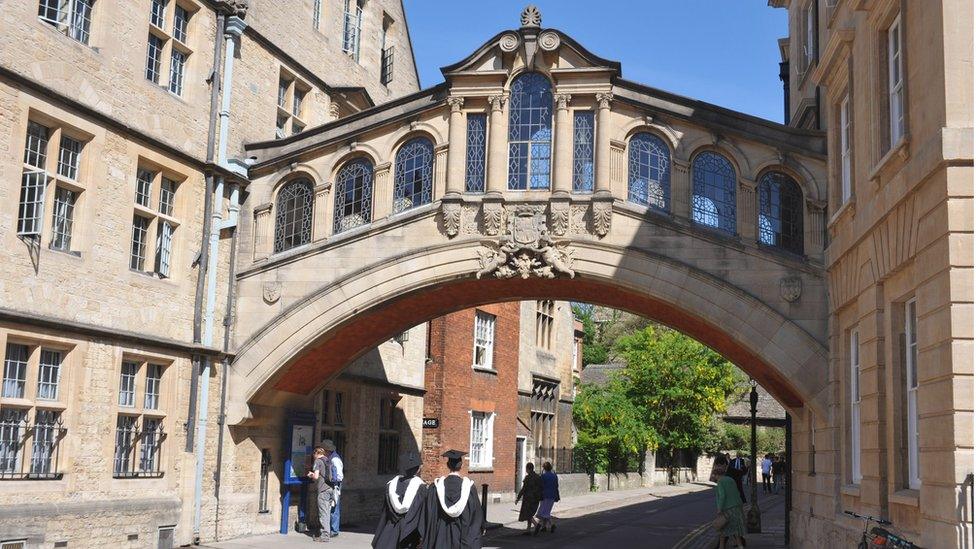
'Anti-Semitic behaviour' was said to have taken place at the Oxford University Labour Club
Despite the inquiries, promises to adopt tough new rules to tackle anti-Semitism at its conference and pledges from Mr Corbyn that racism would be "rooted out", a number of other allegations have come to light during his tenure.
These included:
Labour activist Jackie Walker being suspended from the party in 2016 for claiming Jewish people were "financiers of the sugar and slave trade"
Author Miko Peled allegedly saying during a speech at a fringe conference event that party members should be able to debate whether or not the Holocaust happened, external - he is not a member of the party
Brighton and Hove Labour housing campaigner Daniel Harris being suspended after posting a video on Facebook, external featuring the faces of three Labour councillors superimposed on the heads of dancing Jewish figures
A member from Barnet, London, being suspended for writing anti-Semitic posts on social media, leading to a councillor receiving abuse for reporting it
Now, Mr Corbyn himself is facing criticism after sending an apparently supportive message to the creator of an allegedly anti-Semitic mural.
In October 2012, Mear One posted a picture of his mural in east London called "Freedom of Humanity" on Facebook, with the words: "Tomorrow they want to buff my mural. Freedom of expression. London calling. Public Art."
Mr Corbyn replied: "Why? You are in good company. Rockefeller destroyed Diego [Rivera's] mural because it includes a picture of Lenin."
Allow X content?
This article contains content provided by X. We ask for your permission before anything is loaded, as they may be using cookies and other technologies. You may want to read X’s cookie policy, external and privacy policy, external before accepting. To view this content choose ‘accept and continue’.

The Labour leader has since called the mural "deeply disturbing" and said he is "sincerely sorry" for the pain caused by anti-Semitism in the party.
After a letter from Jewish groups that held Mr Corbyn personally responsible for the "hostile" environment Jews in the Labour Party face, he is facing calls from some of his own MPs to take tougher action.
But members of the Jewish Voice for Labour group claim the two organisations behind the letter do not represent the views of the "great majority of Jews in the party who share Jeremy Corbyn's vision for social justice and fairness" and that there is "massively more anti-Semitism on the right of politics than on the left".
Responding to the Board of Deputies of British Jews and the Jewish Leadership Council with a letter of his own, Mr Corbyn said he would not "tolerate any form of anti-Semitism that exists in or around our party and movement".
He acknowledged that anti-Semitic attitudes had "surfaced more often in [Labour's] ranks in recent years" and emphasised the need for a "deeper understanding of what constitutes anti-Semitism".
Mr Corbyn also said he recognised the "overdue" need for the full implementation of the recommendations of the Chakrabarti report and apologised for "not having studied the content of the [Mear One] mural more closely".
- Published26 March 2018
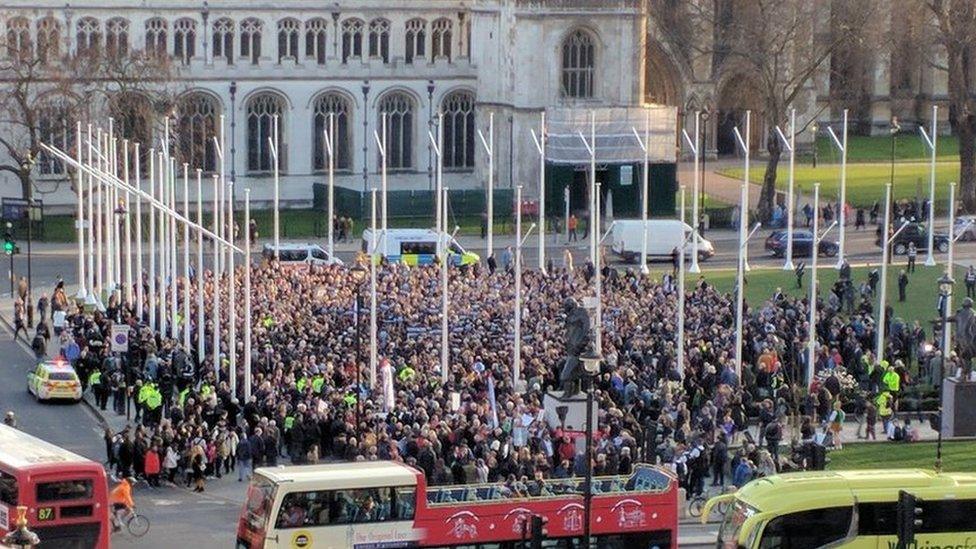
- Published29 April 2016
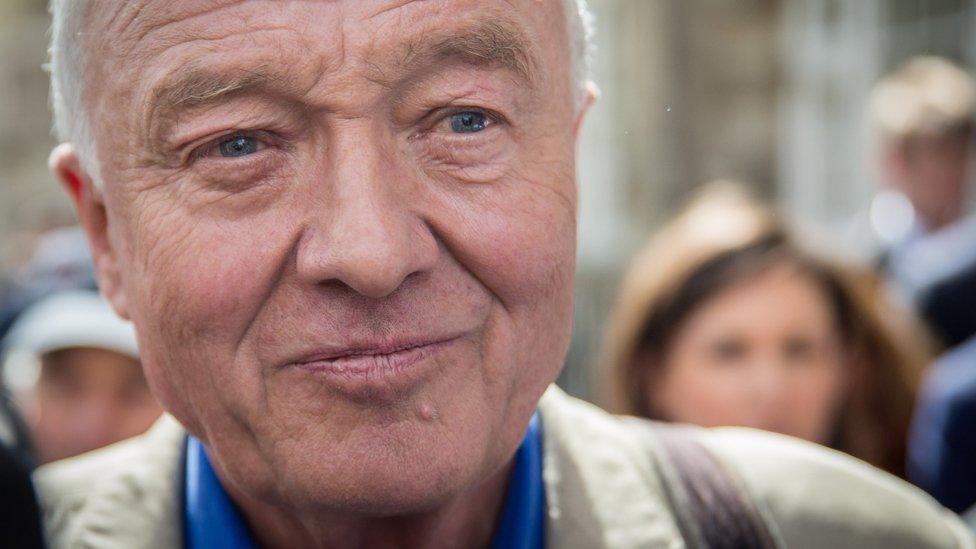
- Published23 March 2018
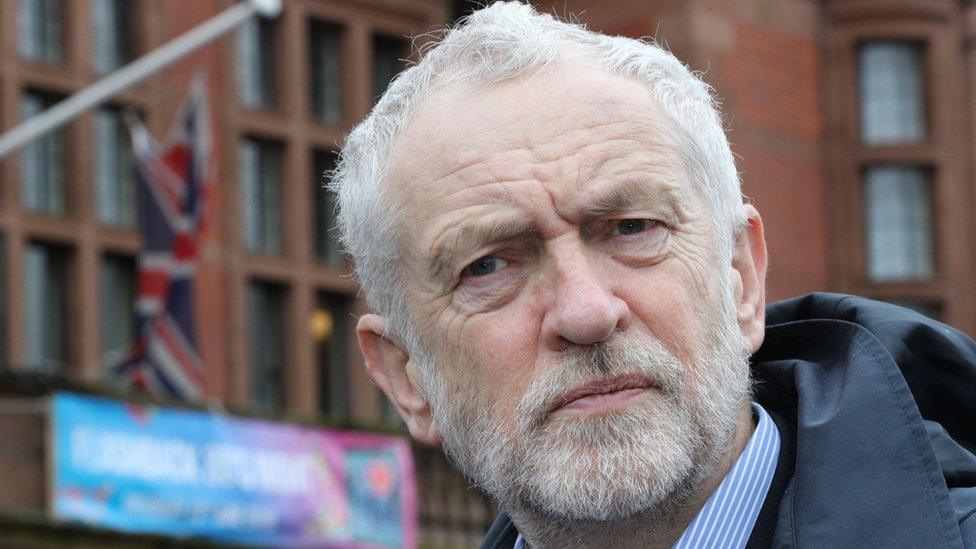
- Published30 June 2016
